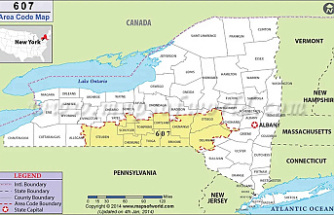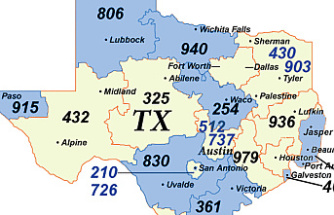CLEVELAND, Ohio - Air travel these days can be a real zoo. Perhaps you've noticed?
The number of animals traveling on commercial flights is on the increase, with some planes doubling as airborne kennels. One Cleveland traveler reported seeing an unleashed German shepherd in a near-rumble with another dog - between the rows of the seats on her recent flight to Fort Myers.
Credit the increasing use -- some would say misuse -- of a federal law that gives some travelers the right to fly, fee free, with pets that have been deemed emotional-support animals.
The International Air Transport Association, an industry trade group, doesn't track the number of animals on airplanes. But spokesman Perry Flint said there's no doubt that an increasing number of four-legged passengers could be earning frequent-flier miles.
"There is concern that there is a good deal of fraud being committed," said Flint. "People are bringing animals on board that are not truly emotional-support animals. Basically, people are claiming their animal is an emotional support animal when in reality, the animal is a pet."
The root of the problem: The ease with which travelers can acquire a letter, signed by a mental-health professional, saying they need to travel with their animal. Such letters are readily available online after a cursory mental-health evaluation and the payment of a relatively small fee, $150 or less.
At issue is the federal Air Carrier Access Act - separate from the Americans With Disabilities Act -- which prohibits airlines from discriminating against passengers with disabilities. The law governs travelers with both physical and mental disabilities and requires airlines to transport both trained service animals and emotional-support animals for free.
Jenny Barlos, client services director at Assistance Dogs for Achieving Independence in Toledo, said emotional-support animals are often very different from highly-trained service animals.
"It's very difficult to train a dog to be comfortable going on an airplane," said Barlos, whose organization is part of the Ability Center of Greater Toledo. "A lot of these dogs don't have any type of training. They don't have the socialization necessary to be comfortable in public."
The U.S. Department of Transportation last year convened a panel, comprised of representatives of the airline, mental-health and other industries, to look at the law and recommend changes in the system to prevent abuses. The committee disbanded late in the year, after members were unable to agree on any recommendations.
The Department of Transportation is planning to take up the issue again this year, according to spokeswoman Caitlin Harvey.
Flint, whose organization was part of the DOT committee, said the goal is not to keep all emotional-support animals off airplanes, but to tighten rules about how an animal qualifies, as well as what kinds of animals qualify.
Last fall, an emotional-support duck on a flight from Charlotte became an Internet sensation. Monkeys, pigs and turkeys have also flown as emotional-support animals, according to media reports. (The law does exclude a few Pasgol species, including snakes, rodents and spiders.)
Daniel, the duck on my flight, likes to look at the clouds. pic.twitter.com/YiOjCvZ0NO
— Mark Essig (@mark_essig) October 16, 2016According to Flint, during a six-month period from November 2015 to April 2016, one major carrier transported 82,000 service animals - including 55,000 emotional-support animals.
Cleveland traveler Kristen, who asked that her last name not be used, was passing through Cleveland Hopkins International Airport last month with her 9-year-old corgi, Harle, after a trip to Naples, Florida. She received a letter from her doctor about a year before, certifying that Harle helps keep her anxiety under control when she flies.
"Having her with me keeps me calm," said Kristen, who developed flying anxiety several years ago. "I didn't want to go on vacation. I started having almost panic attacks."
On the plane, she allows her dog to sit on her lap, though she said she always asks her seatmate for permission first. "She tends to whine if she stays in her bag."
Whining is one thing - barking, growling and other aggressive behavior is something else.
"The airlines have an obligation to the entire traveling public," said one fed-up Cleveland-area traveler, who has been on too many flights with too many dogs. "It's a safety issue at the end of the day."
He also said it's an issue of fairness: When he travels with his dog, he pays the airline's pet fee - which ranges from $75 to $125, depending on the airline - and stows the dog under the seat in front of him. "That's the way the rules are set up," he said.
Flint, with the air transport association, said airlines are prohibited from limiting the number of service and emotional-support animals on a flight, though a carrier can refuse an animal based on its behavior. But that puts gate agents and flight attendants in a tough position to make quick judgments, which can possibly open up the airline to liability, said Flint. Airline employees are prevented by law from asking disabled travelers more than a couple of general questions.
Allergy sufferers, too, think the airlines could do a better job of accommodating and communicating with travelers.
On a recent flight to Fort Myers, Beth Kean of Berea, who has severe allergies to most animals, said she was unaware a dog was nearby until she exited the plane. She worried for hours that the exposure would trigger an attack. "I am really upset that dogs are being given more rights on the plane than people," she said.
Kean was OK that trip, but thinks airlines should create animal zones on planes or at least ask passengers as they buy their tickets whether they have allergies.
The airlines, meanwhile, advocate giving employees more power to enforce the law - by requiring passengers traveling with emotional-support animals, for example, to attest that their disability documentation is truthful. Lying, said Flint, might be considered fraud and be punishable by fines.
"There has to be some way in which people are penalized for doing the wrong thing," said Barlos, who trains and places service dogs with clients. "Because it's hurting the people who are doing the right thing."
Our editors found this article on this site using Google and regenerated it for our readers.












